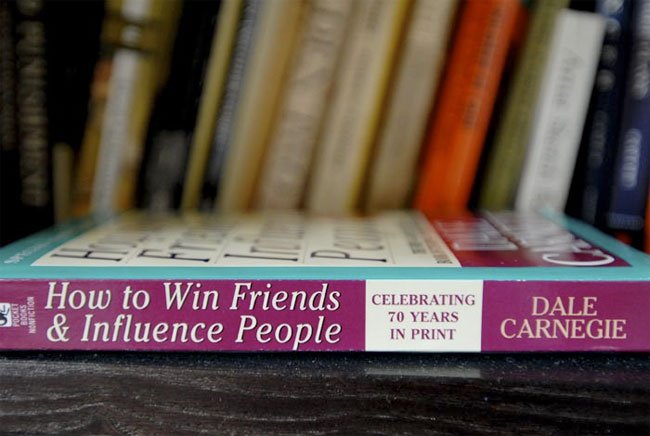
Dale Carnegie first published “How to Win Friends and Influence People” in 1936 and has since sold over 15 million copies and has been updated several times. It remains the best guide to human interactions even though it is over 70 years old. Earlier this month an updated version, “How to Win Friends and Influence People in the Digital Age” was released. I have read this book cover-to-cover on multiple occasions and learn something new that I can implement into my life each time. It is such a timeless book that offers incredible insight into how to work with people and understand them. The principles outlined in the book allow instant implementation and truly change our interactions with others.
If you haven’t had a chance to read the book, quit waiting and buy it. Read it. Read it again. Allow some of these principles to guide you in your dealings with colleagues, family members and even strangers. You’ll be surprised with the effect that a few changes can make.
Here are some of the most important principles outlined:
Become a Friendlier Person
- Don’t criticize, condemn or complain.
- Give honest, sincere appreciation.
- Arouse in the other person an eager want.
- Become genuinely interested in other people.
- Smile.
- Remember that a person’s name is to that person the sweetest and most important sound in any language.
- Be a good listener. Encourage others to talk about themselves.
- Talk in terms of the other person’s interests.
- Make the other person feel important – and do it sincerely.
Win People to Your Way of Thinking
- The only way to get the best of an argument is to avoid it.
- Show respect for the other person’s opinion. Never say, “You’re wrong.”
- If you are wrong, admit it quickly and emphatically.
- Begin in a friendly way.
- Get the other person saying “yes, yes” immediately.
- Let the other person do a great deal of the talking.
- Let the other person feel that the idea is his or hers.
- Try honestly to see things from the other person’s point of view.
- Be sympathetic with the other person’s ideas and desires.
- Appeal to the nobler motives.
- Dramatize your ideas.
- Throw down a challenge.
Be a Leader
- Begin with praise and honest appreciation.
- Call attention to people’s mistakes indirectly.
- Talk about your own mistakes before criticizing the other person.
- Ask questions instead of giving direct orders.
- Let the other person save face.
- Praise the slightest improvement and praise every improvement. Be “hearty in your approbation and lavish in your praise.”
- Give the other person a fine reputation to live up to.
- Use encouragement. Make the fault seem easy to correct.
- Make the other person happy about doing the thing you suggest.


It’s great to find someone so on the ball